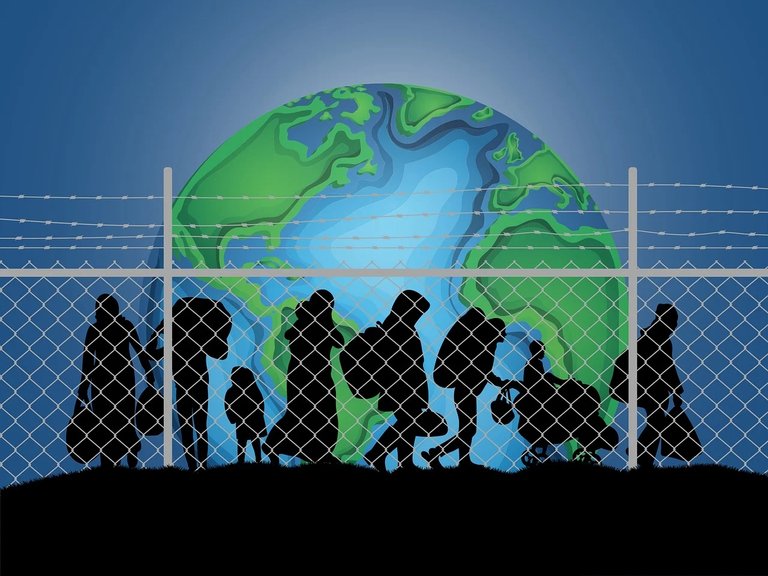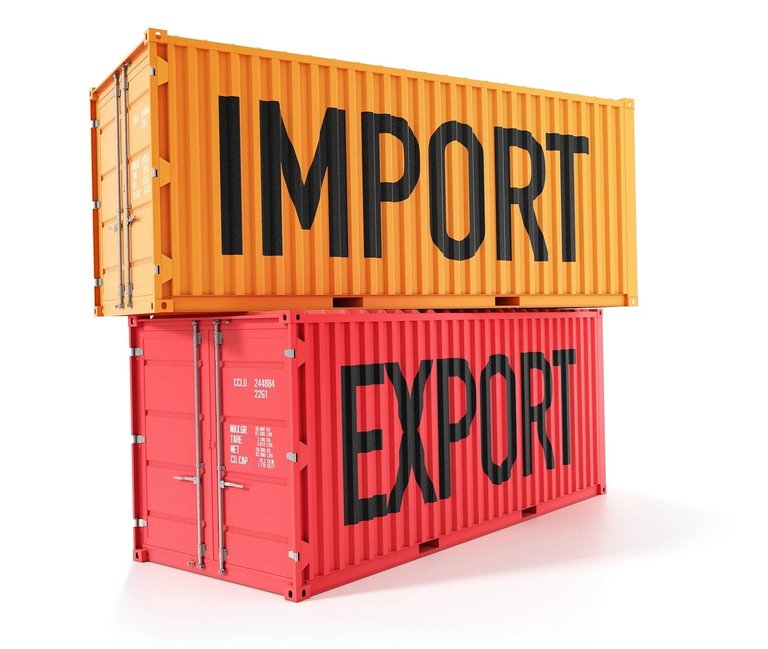Good afternoon guys. I'm @imaima and today I'll be writing on Cultural exchange and the spread of ideas and then the impact of trade and migration on historical development.
Over the generations, commerce and movement of people have been critical in the determination of growth of societies. These processes include the transport, communication, and transfer of people and things which include goods, ideas, technologies and cultural practices. The historical transportation from the Silk Road to the present global trade bears the idea of encountering with other cultures that has greatly transformed the peoples of the world.
**The Silk Road: Major Linguistic and Cultural Events: A Historical Paradigm
Trade is one of the most powerful means of culture exchange, and there is no better example of culture exchange than the Silk Road. This system of canals and sea-lanes ran from China to the Mediterranean Sea and helped in trade in silk, spices and other products. However, it is necessary to state that the outcomes of the creation of the Silk Road were not limited to simply goods.
As a result of these interactions, various technologies like paper making and use of compass spread from culture to the other while at the same time, philosophy and religion exchanged ideas. Most significantly Indian culture merged with the Central Asian culture where Buddhism came and then to China and other areas of East Asia. It played an important role in defining the civilizations of region, which were evolved throughout the history along the silk route.
Migration and the Dissemination of Knowledge
It has also has been instrumental in sharing cultures and ideas in the process of migration. Through processes of migration, whether forced, through conquest, or as settlers, people have over a period of time interchangeably adapted and innovated on culture.
For instance, the invasion of the Aryans to India introduced new languages and also religions that shaped the path of Hinduism and the Sanskrit language. Likewise the spread of Islam through conquest and trade has brought later a wealth of learning and civilization influencing the European renaissance.
Trade links and diffusion of knowledge
Information has been passed through trade. Products like gunpowder originated in China but were later taken to Europe via trade and brought about drastic changes in the way wars were fought, and the general society. The same way that the Europe was changed by introducing new food products such as potatoes and tomatoes from the Americas so also did the cuisines and farming practices change.
But along with material things, non-material, ideas have also migrated as traders and their possessions moved. In this way, influenced by the works of ancient Greek thinkers, the Wise Learned People of Islam objectively developed and enriched their ideas, and passed on their writings to Europe, where they exerted a major influence on European intellectual thinking.
The Role of Globalization
Thus, in the contexts of the present world, both trade and migration interact prominently for an intensification of experience. The impact of the internet and the modern transportation systems has helped in interchange of ideas and cultures at very a very high rate. The international institutions such as trade liberalization agreements, trade unions and institutions of international diplomacy ease on the flow of commodities and people while the world wide web eases on the sharing of information flowing in the world.
Nevertheless, this kind of quick exchange is also not without problems; for instance, the loss of cultural identity and development of a generic culture. The world has become a global village hence the challenge of how to promote and benefit from cultural interchangeability, while at the same time protecting cultural diversity.
Conclusion
Commerce and movement of people have been key in sharing of culture and diffusion of new information throughout the human history. From the early days of the Silk Road to the modern day globalisation these processes have created civilizations, advanced technology and ideas, and built a world’s pool of common human experience. The mishmossible nature of interactions between people and societies of the world means that studying historical interactions can help to prevent future misunderstandings, or at least to be aware of them before entering relationships with other societies.
Best wishes guys ❤️
@imaima
Posted Using InLeo Alpha


Hello.
There is reasonable evidence that this article is machine-generated.
We would appreciate it if you could avoid publishing AI-generated content (full or partial texts, art, etc.).
Thank you.
Guide: AI-Generated Content = Not Original Content
If you believe this comment is in error, please contact us in #appeals in Discord.